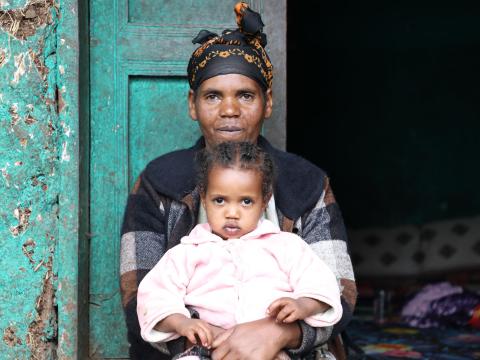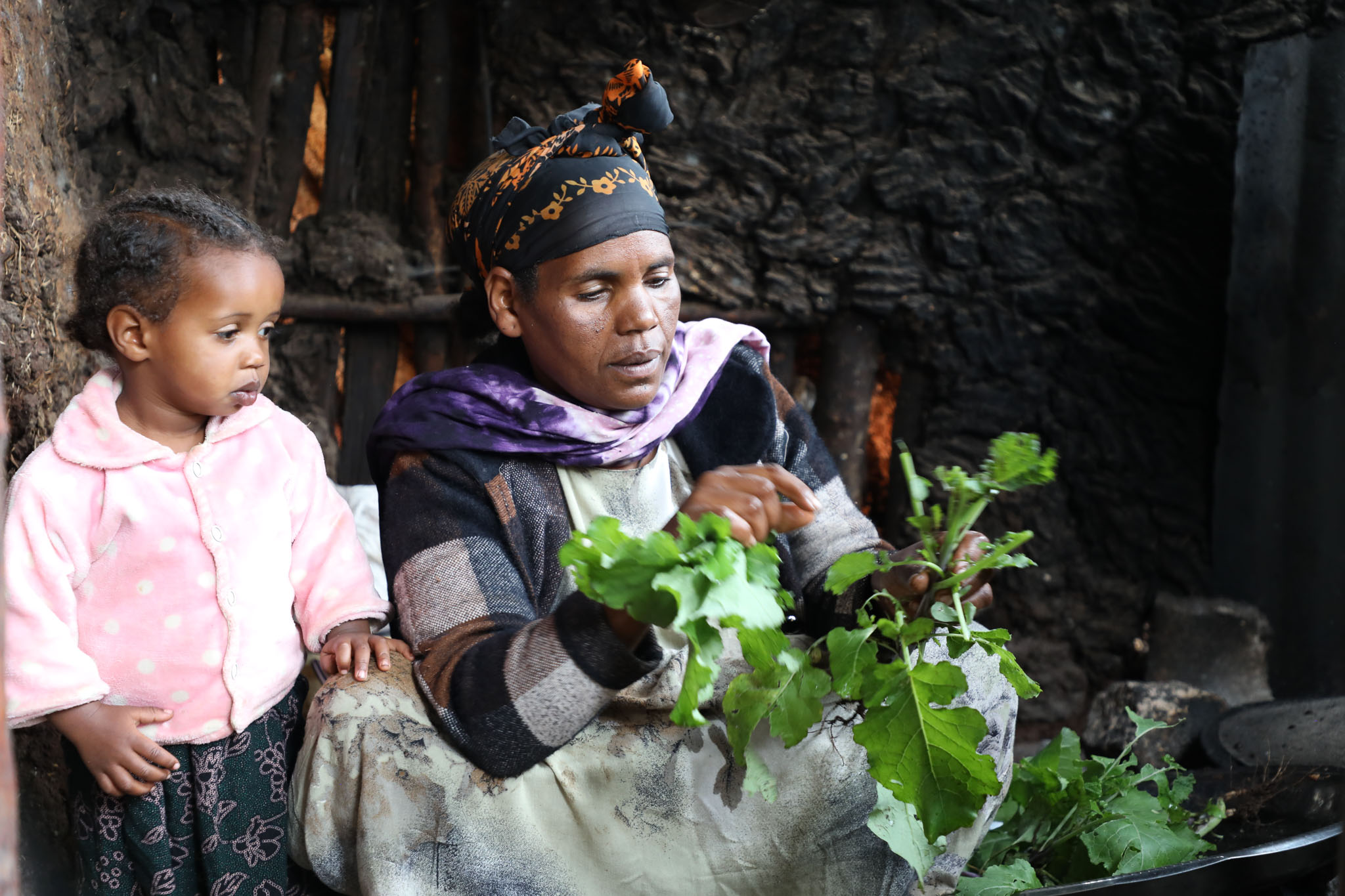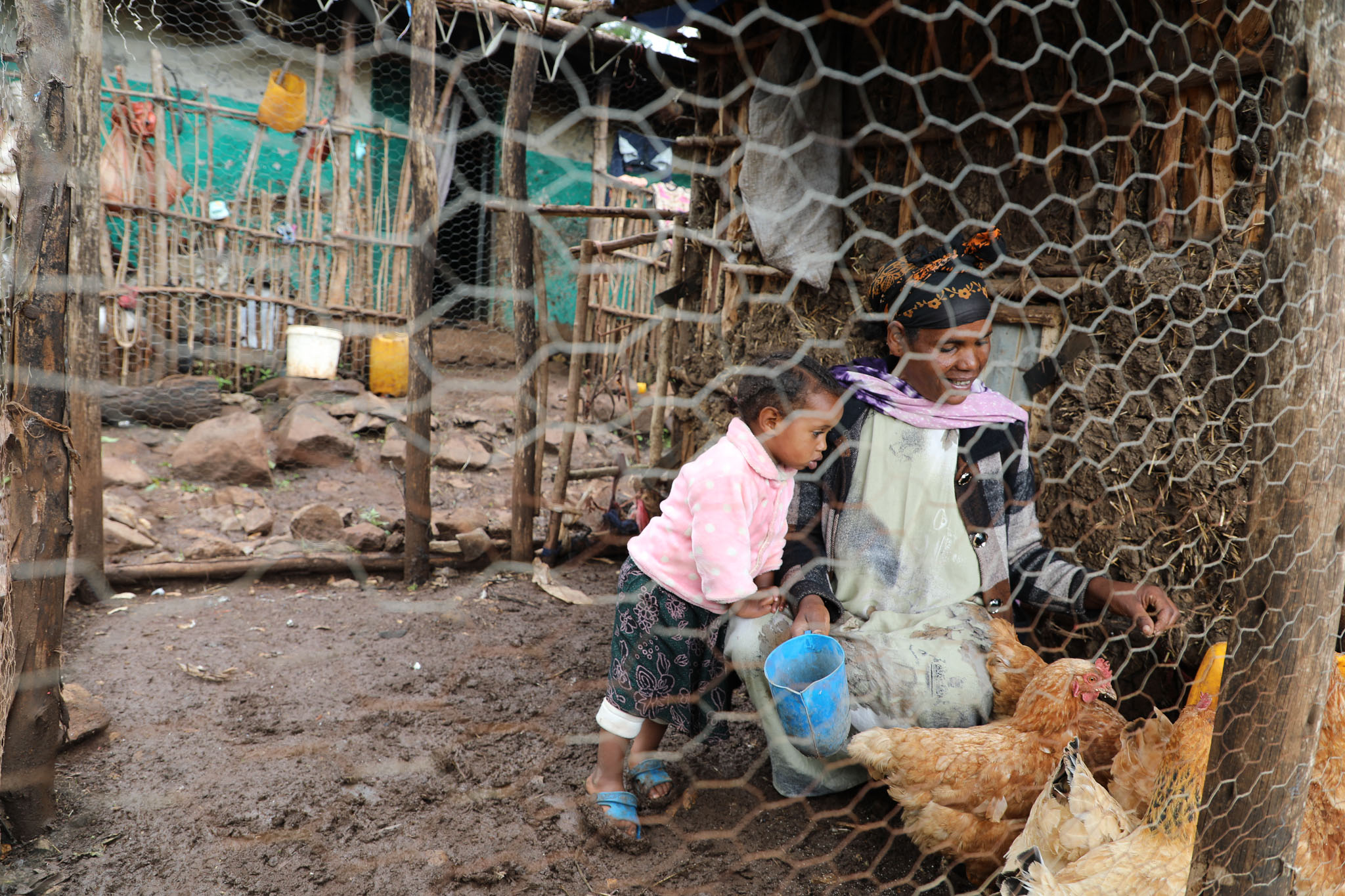Kelemwa’s Growing Resilience

In most parts of Ethiopia, July and August mark the peak of the rainy season. In the highland and mountainous terrain of Gemechis Woreda, West Hararghe Zone, the rain turns rural roads into muddy, slippery tracks. Navigating these roads can be challenging, and our journey was no exception. As the Strengthen Productive Safety Net Programme (PSNP) Institutions and Resilience II (SPIR II) project Communications Specialist, I have the privilege of capturing and sharing the voices and experiences of the communities we serve. Recently, I set out from Addis Ababa with my colleague Legesse, SPIR II’s Knowledge Management Specialist, to meet project participants and hear their stories firsthand. In Chiro town, we were joined by Tsegareda, our committed Environmental Protection Officer, and Yenanesh, one of SPIR II’s dedicated Community Facilitators. Together, we ventured along a narrow, rain-soaked village path—carefully balancing with each step, eager to reach the people whose resilience and insights bring our programmes to life.
We finally arrived at Kelemwa’s home, perched on higher ground. She welcomed my colleagues and me with a warm smile and open arms. Her enthusiasm was contagious, despite the harsh weather and challenging conditions.
 Kelemwa is a 40-year-old mother of five, lives in a small village in Gemechis Woreda. As I looked around her modest homestead, I was struck by how efficiently she had used every inch of space. She had built a small coop for her chickens, tended a vibrant home garden filled with growing vegetables, and created a pen for her goat. Like many rural homes, hers was small, but filled with care and purpose.
Kelemwa is a 40-year-old mother of five, lives in a small village in Gemechis Woreda. As I looked around her modest homestead, I was struck by how efficiently she had used every inch of space. She had built a small coop for her chickens, tended a vibrant home garden filled with growing vegetables, and created a pen for her goat. Like many rural homes, hers was small, but filled with care and purpose.
We sat together, and Kelemwa began to share her story - a story of hardship, resilience, and transformation.
Kelemwa and her husband, Abiyot, survived for many years by working as daily labourers. Life was unpredictable for those who had no farmland of their own. When their situation became dire, they enrolled in the government of Ethiopia’s flagship social protection initiative, the Productive Safety Net Programme (PSNP). Through the PSNP, vulnerable households receive food or cash assistance in exchange for participating in public works that benefit the community.
One of the key tools that the SPIR II project uses is the Village Economic and Social Association (VESA); these are community-led savings and loan groups that empower members through financial education, small internal loans, and social insurance.
“Before I joined the VESA, I did not understand the value of saving, even a small amount,” Kelemwa recalled. “But saving a little every week gave us access to loans and helped me start a small business, such as raising chickens. I feed the eggs to my children, and the extras are sold at the market.”
With her first loan, Kelemwa bought six chickens. Over time, she expanded her flock to 25 hens. When 13 of them stopped laying eggs, she sold them for meat and used the profits to buy a goat, which is now pregnant.
Since SPIR II started implementation, 3,953 VESAs have been established in the Oromia, Amhara and Tigray regions, with a total of 88,497 members—57% of whom are women. Members like Kelemwa are now benefitting from loans and discussions within their VESAs to improve their livelihoods.
Kelemwa did not stop there. SPIR II also provided her with training in home gardening and connected her to a local agrodealer where she could buy seeds and agricultural tools. With her new skills, she transformed a small patch of her backyard into a thriving vegetable garden.
 “My fourth child used to suffer from frequent malnutrition,” Kelemwa shared. “But after I started growing vegetables and collecting eggs, my children began eating healthier meals. My fifth child, who was born after I started the garden, is stronger and healthier than her older siblings.”
“My fourth child used to suffer from frequent malnutrition,” Kelemwa shared. “But after I started growing vegetables and collecting eggs, my children began eating healthier meals. My fifth child, who was born after I started the garden, is stronger and healthier than her older siblings.”
Kelemwa grows carrots, Swiss chard, Ethiopian kale, and beetroots. By selling her surplus vegetables, she recently earned 800 Birr ($6) four times a year, providing an additional source of income to support her family’s needs.
Today, Kelemwa is proud to send all five of her children to school. “Earlier, we struggled even to feed them, let alone send them to school,” she said. “But now, with the support we have received, we can generate income by selling vegetables and eggs, and we are also able to prepare a variety of meals at home.”
Looking ahead, Kelemwa is filled with hope and determination.
“I feel like my eyes have been opened,” she said with a smile. “Now, I dream of growing my business even more, so my children can have a better future.”
In Kelemwa’s village, the Productive Safety Net Programme (PSNP) is supported through the SPIR II project, which is led by World Vision Ethiopia in partnership with CARE, ORDA Ethiopia, and IFPRI as a learning partner. SPIR II is more than just a food distribution mechanism; it also acts as a springboard for families to build resilience, enhance food security, and create sustainable livelihoods.
This reflects the U.S. Government’s broader commitment to ending the need for long-term aid by fostering self-reliance and building sustainable local and private partnerships rather than dependency. By directing resources toward individuals who demonstrate initiative and accountability, U.S. foreign assistance delivers tangible benefits to local communities, placing children at the centre, while also adding value for American taxpayers, promoting stability, encouraging entrepreneurship, and advancing shared interests.
Kelemwa’s story is a testament to the transformative power of direct community-level support, which builds resilience and catalyses available opportunities. Kelemwa is currently building a future not through handouts, but through hard work, training, and smart investment tools made possible by strategic U.S. assistance that prioritises efficiency, accountability, and long-term results.
By Emnet Dereje, Communications Specialist (SPIR II), World Vision Ethiopia